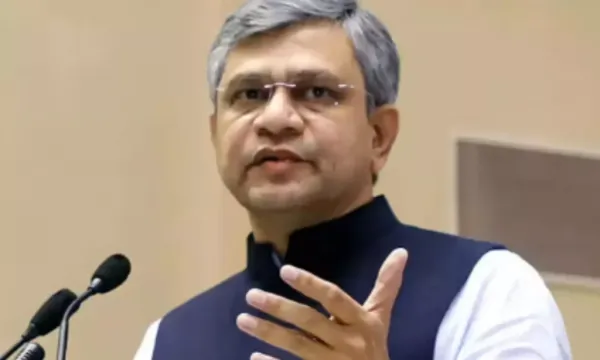
In a plot twist worthy of a reality TV show, the Promotion and Regulation of Online Gaming Bill was passed with voice vote in the Rajya Sabha on Thursday, just a day after it was cleared in the Lok Sabha.
The law itself is so dramatic that it bans nearly all real-money games while sending Esports on a flamboyant victory lap.
The bill clamps down on online games involving monetary transactions, including their ads and financial dealings. This would include fantasy sports, card games such as poker and rummy, online lotteries, and other betting or gambling platforms.
It also sets up a central regulatory body and puts Esports and social or educational games on a digital pedestal. And the deterrents are significant with violators set to face hefty penalties, even jail time of up to three years.
But why was the bill proposed in the first place?
The premise
The government positioned the bill as an antidote for widespread financial and psychological anguish across society.
Real-money gaming, it argues, is the digital equivalent of succulent street food —addictive, destructive, and hard to stop. Officials invoked concerns like money laundering, fraud, and the unfortunate possibility of teen gamers turning into zombies hurtling toward self-destruction.
When tabling the bill in the Upper House, the Minister of Electronics and Information Technology Ashwini Vaishnaw used the term ‘drug addiction’ to describe the situation.
“The money-gaming addiction is like drug addiction. The powerful people behind online money games will challenge the decision in courts. They will run social media campaigns against this ban. We have seen the impact of games and how the money is used to support terror,” he said.
The government cites the premise of online money games played by users by depositing money with an expectation of attaining monetary returns by means of earnings. It estimates that around 45 crore people lose close to Rs 20,000 crore every year in online real money gaming.
The online gaming industry was valued at ₹23,000 crore in 2023. (Photo credit: X)
Who is impacted
Per industry bodies, the passing of the bill in the Rajya Sabha is a proverbial “death knell” to the sector.
Consider the numbers: the online gaming industry was valued at ₹23,000 crore in 2023 and projected to soar to ₹70,000 crore by 2027, growing at a healthy 20% CAGR.
That is not just pocket change, instead it is a full-fledged digital economic engine. Add to that over 50,000 direct jobs and about 1.3 lakh indirect jobs in design, development, and marketing. With the ban, many of these livelihoods could vanish faster than a user’s UPI balance on a shopping spree.
Then there is the tax revenue. Industry bodies warn of a ₹20,000 crore annual hit to government coffers. Now, that is money that could have gone into schools, infrastructure, or even paying for the MPs’ tea breaks.
Instead, the bill appears to be the government move to swap cash flow for moral policing.
The stock market took notice of the bill.
Nazara Technologies fell 11% (over and above a 10% drop sustained previously). Meanwhile, Delta Corp did not fare any better, plummeting 3–5% over two days, purely over speculations. While the latter is the only listed company that engages in the casino electronic gaming industry in the country, the former has significant interests in mobile gaming and Esports.
The Leader of Opposition Mallikarjun Kharge was quick to react and cited the absence of a discussion. Karnataka IT Minister Priyank Kharge slammed the ban as “another masterstroke in bad policymaking,” wondering, “why the rush?”
While the bill might protect users from gaming losses, the price to pay is a clear throttling of innovation, scaring off of foreign investors, all of which quite simply dunks India’s digital economy into timeout.
-
Navi Mumbai To Host 'Patriotic Splash' Funtoosh Mini Mela For Special Children On August 22

-
Navi Mumbai To Host 'Patriotic Splash' Funtoosh Mini Mela For Special Children On August 22

-
Navi Mumbai To Host 'Patriotic Splash' Funtoosh Mini Mela For Special Children On August 22

-
£60m Alexander Isak replacement snubbed by Virgil van Dijk as Newcastle get green light

-
£60m Alexander Isak replacement snubbed by Virgil van Dijk as Newcastle get green light
